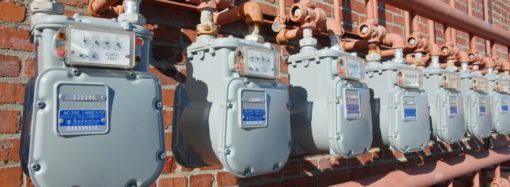Colorado is home to 5,000 wind energy jobs, according to a new, totally unbiased report from the American Wind Energy Association, this country’s premier wind energy lobby. Of course, the study is bogus. I wish I could tell you how the books were cooked. Unfortunately, I can’t read the report, because the AWEA put it behind a $125 pay wall. For now, you’ll have to trust me when I say that wind energy lobbyists are like all other shills; any report they produce will contain gross exaggerations. That’s what they’re paid to do.
Setting aside the AWEA’s bunk study, it is true that there are thousands of wind energy jobs in Colorado. Thanks to wind energy lobbyists, the General Assembly has enacted a spate of expensive energy policies, collectively known as the “New Energy Economy,” which force Coloradans to buy wind energy, among other things. It stands to reason that such policies—those that force Coloradans to use wind energy—would “create” jobs in the wind energy industry.
Is this a good thing? History suggests not. Otherwise, Communism would have worked, right? For a much more sophisticated explanation of the impossible economics of Soviet-style green energy production quotas, see this excellent Independence Institute guest oped by Ari Armstrong. For a technical discussion explaining how wind power is devalued by its intermittent, unreliable nature, check out this testimony, by former California Energy Commission Commissioner Tom Tanton, from a lawsuit being brought against the Colorado Renewable Electricity Standard (full disclosure: I am contributing to this lawsuit. See my testimony here).
Another red flag is the tenuousness of wind energy sector employment. Because the renewable energy industry is based on political support, it is faced with bankruptcy every time political winds change. And that happens a lot. Most recently, it happened last December, when AWEA’s top lobbyist warned that the industry would hemorrhage 55,000 jobs, unless the Congress extended a particularly generous subsidy.
It is also true markets predicated on government policies in lieu of supply and demand, such as the wind energy market, are prone to bottlenecks and oversupply. These defects lead to unfortunate outcomes, such as useless wind farms unconnected to the grid, and the sudden “furlough” of 500 Colorado wind energy jobs.
Let’s not forget the customer impact. The PUC has allowed Xcel to use a variety of budget tricks and accounting gimmicks to hide the true cost of renewable power, but there’s no hiding the increase in utility bills! Absent fuzzy math, wind energy is more expensive than conventional energy. Period.
William Yeatman is an energy policy analyst at the Competitive Enterprise Institute







